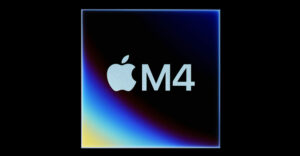
Hewlett-Packard this week unveiled three new systems based on Advanced Micro Devices’ Opteron processor, taking advantage of the processor’s price-performance advantage and in the process drawing ever closer to Intel’s main rival.
In announcing new BladeSystem servers, a workstation supporting dual-PCI Express graphics, and a new family of ProLiant servers based on the Opteron processor, HP called attention to improved manageability, performance and customer choice.
Industry analysts said that although HP still ships hardware with Intel processors and will likely continue to do so, the use of AMD’s Opteron in its latest products allows HP to cater to an audience that it might not have reached as effectively with Intel’s processors.
Chip Choices
“It’s a relatively new segment, this server workstation,” IDC senior analyst Shane Rau told TechNewsWorld. “It’s this fairly narrow segment [of the server market] that is based on PC-like architecture.”
Rau said the market share of blade server processors had grown steadily over the last several quarters. Market share has also grown for Opteron, which was launched in 2003 and now accounts for about 8 percent of the overall server-specific processor market.
HP claimed that its latest Opteron-based offerings were a result of its effort to build hardware based on industry standards to address the productivity and time-to-market demands of customers, regardless of processor.
“HP’s strategy to innovate on top of standards allows us to offer ‘chip-nostic’ designs to our customers, allowing them to take advantage of the latest performance features and technologies,” said a statement from Brad Anderson, HP senior vice president and general manager of industry standard servers. “These solutions offer a quick return on investment, especially in fast-growing areas like blades and Linux.”
In addition to the three new server systems based on Opteron, HP also started shipping new ProLiant Essentials management tools, new entry-level servers for business and high-performance technical computing customers, and performance upgrades to some ProLiant servers that are based on 64-bit Xeon and Celeron processors from Intel.
AMD Advantage
Martin Reynolds, Gartner research vice president, said that although HP had been incorporating AMD’s processors in its products for some time, the latest HP hardware reflects the advantages of Opteron, particularly in the 4-way server configuration.
“These little 4-way servers have really good price-performance, and [HP] can go places they maybe couldn’t with Intel,” Reynolds told TechNewsWorld. “Having a different brand there helps them manage all that.”
Reynolds said Intel currently lags behind AMD in the 4-way server space but is likely to respond to Opteron’s edge. He also said HP is leveraging its relationship with AMD to gain more negotiating room with Intel, which continues to provide the processors that power a wide range of HP products, including desktop and server computers.
Compatible and Customized
IDC’s Rau said HP’s latest offerings are part of a growing blade server trend in which the smaller, thinner servers are gaining traction largely because they allow efficiency improvements but are still compatible with x86 hardware and associated software.
“HP knows it needs to offer higher and higher-end computing products based on x86, and they’re doing that,” Rau said.The analyst added that the servers are coming in ever more customized form factors to meet the needs of particular usage models.
HP’s choice of AMD processors was probably based largely on the lack of comparable processors from Intel, Rau said, and it is unlikely HP will abandon its Intel offerings anytime soon.
“I don’t think HP is kicking Intel out in any way,” he said.




















































